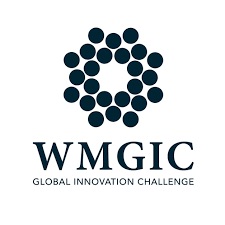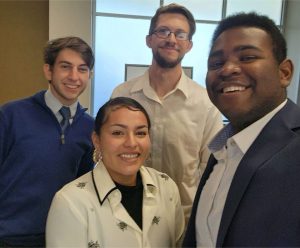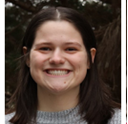PSIA Attends the Biannual WMGIC x NATO Contest for the Third Time

For the third year in a row PSIA students participated in the William and Mary Global Innovation Challenge (WMGIC) x NATO Headquarters Event. According to the WMGIC website, “WMGIC is a student-led organization that hosts premier case competitions. These events champion interdisciplinary collaboration and mobilize students to tackle global issues [and] develop solutions with real world applicability and impact.”
The competition was in collaboration with NATO and was designed to emulate a NATO planning session. It brought together teams from universities from across the NATO alliance for virtual interaction.
Two UNG teams competed and offered solutions for “Countering Disinformation,” one team specifically focused on sexism and gender-based violence; and the other focused on public health.
One team consisted of three members within the PSIA department: Orla Fennell, IA’ 23, Jessica Case, IA’24, and Carlee Blankenship, PS pre-Law ‘23.

The other team was made up of four members (L-R & back to front in the above picture): Zachary Furbush, IA’25, Dylan Gearin, HIST’24, Rubi Islas PS’25 and Nathanael Hines PS/Pre-Law ‘24.
For both Jessica Case and Nathaneal Hines, this fall’s challenge was their second time participating in the WMGIC x NATO disinformation Challenge. When asked about the difference between his first WMGIC x NATO Challenge and his second Nathaneal said “The conference was about combating disinformation in the sphere of public health. Last year, it was about combating disinformation regarding the Russia-Ukraine War. Although we didn’t win, it was still a valuable experience. We created an in-depth course of action for NATO and received guidance from NATO officials and other mentors. I definitely recommend this experience to others.”
Both teams were supported by PSIA faculty members Dr. Bibek Chand, Dr. Jonathan Miner and Dr. Hamid Serri.
While neither team won their respective part of the competition, as a member of one of the teams I can attest to the fact that we were most definitely rewarded. It was quite the experience to meet and interact with fellow international peers, policy strategists and professors such as Lindsey Blount, a project & business manager for military and veteran affairs at William & Mary University; Robin El Kady, International Staff at NATO; Commander Galbreth, Head of the Strategy Branch for the NATO Cooperative Cyber Defence Center of Excellence (CCDCOE); and Mckenna Black, NATO Information Environment Assessment analyst, who all offered guidance and aid to our proposal.
When asked about this years’ conference, Jessica Case said, “I think to be able to participate in competitions like these really helps connect what I learn in classes to the real world. I think as students we are so used to things being presented in a classroom, but events like these make us push ourselves to take what we know and think outside the box. … I also think it’s just really cool to try to come up with a policy for NATO, especially when it comes to a really pressing topic. I think the whole challenge of combatting disinformation is something that is prevalent in the current state of affairs. The different streams gave us the opportunity to explore the different interests we all have.”
[Author: Orla Fennell, IA ‘23]


